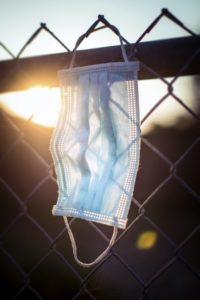Treatment Protocol for Post COVID-19 Infections in an Effort to Mitigate Residual Pulmonary Injury and Long Term Lung Damage Caused by the SARS COVID 19 Virus

Mesenchymal Stem Cells (MSCs) have been widely used in bench-to-bedside research. Their safety and efficacy have been clearly documented in several clinical trials, including immune-mediated inflammatory diseases such as graft versus-host disease and systemic lupus erythematosus. MSCs play a vital role mainly in two ways – immunomodulatory and differentiation abilities. They are known to secrete several cytokines by either paracrine secretion or by making interaction directly with immune cells leading to immunomodulation.
This is in accordance with a recently published study which demonstrated presence of immunomodulatory cytokines (Gupta, et al., 2020) (Prasanna & Jahnavi, 2011).The immunomodulatory effect of MSCs is triggered further by the activation of Toll-like receptors (TLR), stimulated by pathogen-associated molecules – Lipopolysaccharides (LPS) or double stranded RNA from viruses such as coronavirus. In addition, a recent study by Leng, et al., (Leng, et al., 2020) demonstrated that intravenous implantation of MSCs was safe and effective for treatment in patients with COVID-19 pneumonia (Beijing YouAn Hospital, China) (Leng, et al., 2020), especially for patients in critically severe condition. Another recent study, by Leng et al., reported that a critically ill COVID-19 patient tolerated and showed significantly improved clinical outcomes after treatment with umbilical cord-derived MSCs.
Even more recently published studies show early promise for the interruption and reversal of potential long term lung damage inflicted by the ravishes of the SARS COVID 19 virus (Shi, Huang, Wang, & et al., 2021).
This makes sense when compared to the results we have experienced with our COPD patients, who undergo a similar treatment protocol.
With this in mind, we decided to treat one of our own for post COVID 19 lung damage (scarring & inflammation) in January 2021. The patient had a confirmed case of COVID 19 on July 5, 2020. X-rays taken in December, 2020, revealed scarring in the lower left lobe of the lung, confirmed by the radiologist’s report. A treatment utilizing MSCs was performed at the GARM Clinic in mid-January, 2021. Four weeks later in February, 2021, a chest X-ray revealed clear lungs and resolution of the problem in the lower left lobe, as confirmed by the radiologist’s report.
Because the safety and efficacy of this particular MSC treatment protocol has been established at the GARM Clinic over the past six years in COPD patients, we can say with confidence the post COVID 19 treatment protocol offered by the GARM Clinic poses a very low risk to the patient. In our experience, there have been no adverse events reported by our patients directly related to any stem cell treatment provided by the GARM Clinic, including those for COPD, and most recently, post COVID 19 mitigation.
Therefore, the intention of GARM Clinic’s COVID 19 lung treatment protocol is to mitigate permanent lung damage within the oxygen/carbon dioxide exchange surface that results from the direct alveolar disruption and scarring reaction caused by the SARS COVID 19 virus.
Bibliography
1. Alexander, R. W. (2020). Potential Use of Cellular Stromal Vascular Fraction in Post-COVID-19 Pulmonary Injury and Adult Respiratory Distress Syndrome. Journal of Current Medical Research and Opinion, 468-474.
2. Gupta, A., El-Amin III, S. F., Levy, H. J., Sze-Tu, R., Ibim, S. E., & Maffulli, N. (2020). Umbilical cord-derived Wharton’s jelly for regenerative medicine applications. Journal of Orthopaedic Surgery and Research.
3. Leng, Z., Zhu, R., Feng, Y., Yang, Y., Han, Q., Shan, G., & Meng, F. (2020). Transplantation of ACE2 Mesenchymal Stem Cells Improves the Outcome of Patients with COVID-19 Pneumonia. Aging and Disease, 216-228.
4. Prasanna, S. J., & Jahnavi, V. S. (2011). Wharton’s Jelly Mesenchymal Stem Cells as Off-The-Shelf Cellular Therapeutics: A Closer Look into their Regenerative and Immunomodulary Properties. The Open Tissue Engineering and Regenerative Medicine Journal, 28-38.
5. Shi, L., Huang, H., Wang, F.-S., & et al. (2021). Effect of human umbilical cord-derived mesenchymal stem cells on lung damage in severe COVID-19 patients: a randomized, double-blind, placebo-controlled phase 2 trial. Signal and Transduction and Targeted Therapy.
